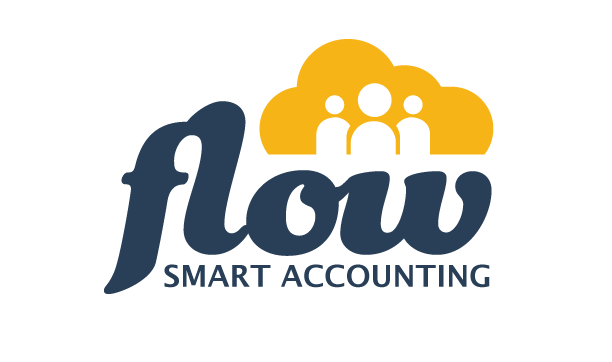 There is a lot that is still unknown in this economic climate. But we must not let fear and panic to blind us from our ultimate goal, which is to provide a great service or product for our clients. When this is over your business should be the one stepping up with creativity and innovation, seeking to add as much value as possible to your clients.
There is a lot that is still unknown in this economic climate. But we must not let fear and panic to blind us from our ultimate goal, which is to provide a great service or product for our clients. When this is over your business should be the one stepping up with creativity and innovation, seeking to add as much value as possible to your clients.
It will be safe to think now that the COVID-19 cases are going down that the economy will start to re-open next month (May 2020), it will be phased, it won’t be as it was before but it will be a start and now is the time to start thinking on how well prepared your business will be for that moment.
We want to share with you some of the most notable benefits from the government to businesses because they could mean the much-needed oxygen for your business right now.
We won’t be covering all the benefits in this blog, but we will be explaining the ones we believe will help you to survive without getting into more debt.
We hope you find this information useful and we encourage you to apply for as many benefits your business could be eligible for.
1- The New Canada Emergency Business Account (CEBA)
The new Canada Emergency Business Account – a new loan program, that will be implemented rapidly by eligible financial institutions in cooperation with Export Development Canada (EDC).
This program provides interest-free loans of up to $40,000 to small businesses and not-for-profits, to help cover their operating costs during a period where their revenues have been temporarily reduced.
Eligible businesses are small businesses, non-for profits.
To qualify, these organizations will need to demonstrate they paid between $20,000 to $1.5 million in total payroll in 2019. Repaying the balance of the loan on or before December 31, 2022, will result in loan forgiveness of 25 percent (up to $10,000).
Application is through your financial institution, very simple and quick to apply and if eligible funds will be granted within 5 business days.
We encourage you to use the 10k non-repayable portion to cover your overhead such as rent and other expenses.
2- Canada Emergency Wage Subsidy (CEWS)
The subsidy generally covers 75% of an employee’s wages – up to $847 per week – for employers of all sizes and across all sectors who have suffered a drop in gross revenues of at least 15% in March and a 30% in April and May.
It is important to note that if you are eligible for March you will automatically be eligible for April too and too be eligible for May you need to show 30% drop in sales in either April or May 2020.
The program will be in place for a 12-week period, from March 15 to June 6, 2020.
If you are reducing the hours to your employees for more than 25% and you are asking them not to come to work then you may be eligible for the CEWS are entitled to receive a 100% refund for certain employer contributions to Employment Insurance, the Canada Pension Plan, the Quebec Pension Plan, and the Quebec Parental Insurance Plan paid in respect of employees who are on leave with pay.
For employers that are eligible for both the CEWS and the 10% Temporary Wage Subsidy for a period, any benefit from the Temporary 10% Wage Subsidy for remuneration paid in a specific period will generally reduce the amount available to be claimed under the CEWS in that same period.
3- 10% Temporary wage subsidy
This is a three-month measure that allows employers to reduce the number of payroll deductions required to be remitted to CRA.
This program is open to; Individuals, (excluding trusts), partnerships, non-for profits, registered charity or CCPC’s (Canadian controlled private corporations).
The subsidy is equal to 10% of the remuneration you pay from March 18, 2020, to June 19, 2020, up to $1,375 for each eligible employee to a maximum of $25,000 total per employer.
4- Canada Emergency Commercial Rent Assistance (CERCA)
Canada Emergency Commercial Rent Assistance (CECRA) program for small businesses that, will seek to provide loans and/or forgivable loans to commercial property owners who in turn will lower or forgo the rent of small businesses for the months of April (retroactive), May, and June.
Implementation of the program will require a partnership with provincial and territorial governments who are responsible for property owner-tenant relationships.
We are expecting more details on this within the next few days and the program launch in May 2020. More details will come, and we will update this blog once available.
5- Deferral of Income taxes and Sales Tax Remittance and Customs Duty Payments
Businesses are allowed to defer, until after August 31, 2020, the payment of any income tax amounts that become owing on or after March 18 and before September 2020.
Businesses, including self-employed individuals, are also allowed to defer until June 30, 2020 payments of the Goods and Services Tax / Harmonized Sales Tax (GST/HST), as well as customs duties, owing on their imports.
The deferral will apply to GST/HST remittances for the February, March and April 2020 reporting periods for monthly filers; January 1, 2020, through March 31, 2020 reporting period for quarterly filers; and for annual filers, the amounts collected and owing for their previous fiscal year and instalments of GST/HST in respect of the filer’s current fiscal year.
For GST and customs duty payments for imported goods, the deferral will include amounts owing for March, April and May.
These amounts were normally due to be submitted to the Canada Revenue Agency and the Canada Border Services Agency as early as the end of this month.
Please note that while you are allowed to defer the remittance still should be done as per schedule.
If you need more information on specific benefits and strategies in this challenging new environment, please reach out to us.
Your friends at Flow
